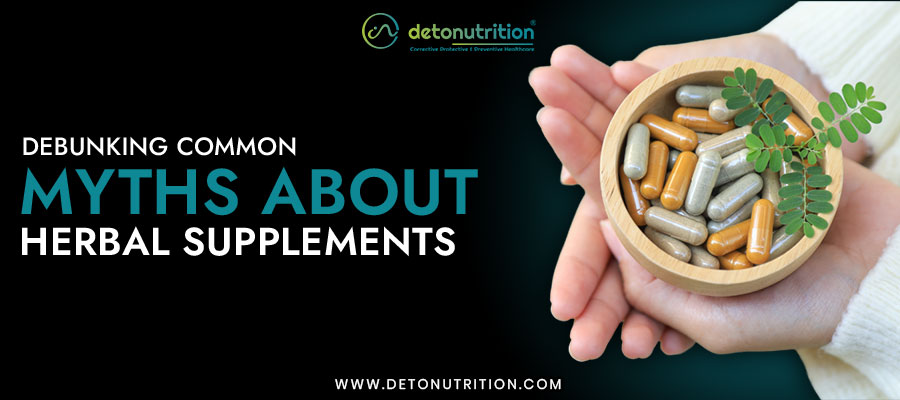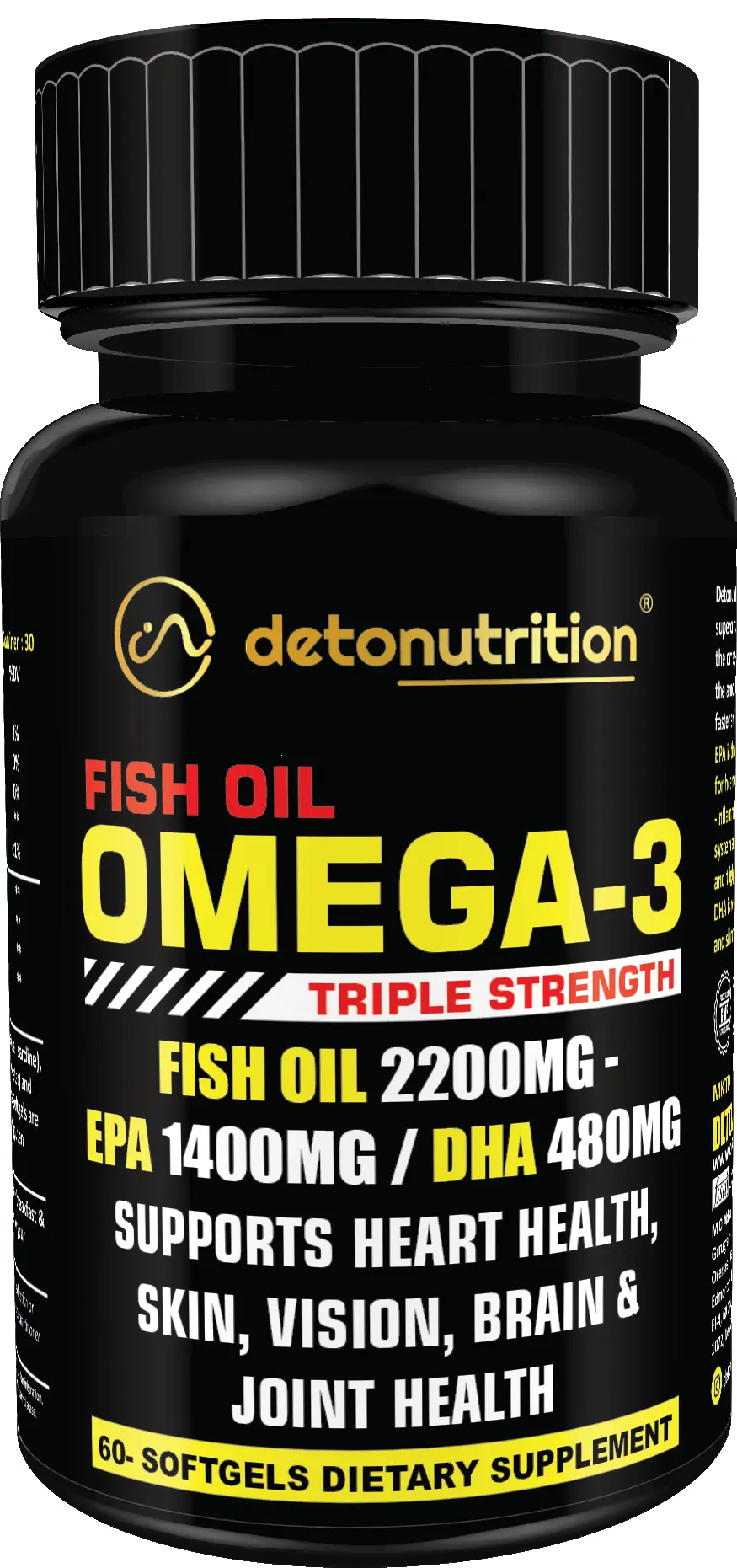Debunking Common Myths About Herbal Supplements
Herbal supplements have gained popularity in recent years as more people turn to natural remedies for health and wellness. With a growing market for these products, it's important to understand the science behind herbal supplements to separate fact from fiction. In this blog, we will debunk common myths associated with their use or in other words separate the facts from fiction.
What are Herbal Supplements?
Before diving into the facts, let's understand what herbal supplements are. Well, herbal supplements are products that are made from plants or plant extracts which are used to improve your overall health and well-being. These supplements can come in various forms, including capsules, powders, and liquids. Herbal health supplements are often marketed as natural alternatives to pharmaceuticals and are believed to have a range of health benefits. Now, let's debunk common myths and explore the facts about herbal health supplements.
Read This Article - Top 5 Workout Supplements For Enhancing Your Workout Performance
Debunking 3 Most Common Myths About Herbal Health Supplements
There are many myths and misconceptions about herbal supplements, which can make it difficult for consumers to make informed decisions about their use.
Myth 1: All herbal supplements are regulated by the FDA in the same way as pharmaceutical drugs.
Fact: While the regulation of herbal supplements may not be as stringent as pharmaceutical drugs, they are still subject to oversight by the FDA. The FDA requires manufacturers to ensure their products are safe and accurately labeled. However, it's crucial to purchase herbal supplements from reputable brands to ensure quality and safety.
Myth 2: Herbal health supplements are safe and cannot interact with other medications.
Fact: Herbal supplements are safe but can interact with other medications and may cause adverse effects in some individuals. For instance, many scientific research and studies have shown that turmeric has anti-inflammatory properties, but you cannot consume turmeric supplementation with Tagamet, Zantac, famotidine, Nexium, Ranitidine, and Omeprazole as turmeric supplementation may interfere with the action of these drugs, increasing the production of stomach acid. That is why, it's essential to look for those herbal health supplements that are third-party tested to ensure their effectiveness.
Myth 3: Herbal Supplements work the same for everyone.
Fact: It's essential to recognize that not all herbal supplements will work the same for everyone. Just like with pharmaceutical drugs, individual variability plays a significant role in how effective herbal supplements may be for a person. Factors such as genetics, diet, and lifestyle can influence how your body responds to herbal health supplements.
Read This Article - Top 5 Benefits Of Fish Oil For Bodybuilding
Most Popular Herbal Supplements and Their Benefits
Following are some of the most common herbal ingredients that are used in the manufacturing of Detonutrition Supplements.
1. Turmeric:
Turmeric is a spice derived from the root of the Curcuma longa plant and is known for its anti-inflammatory properties. It has been used in traditional medicine for centuries and has been shown to help reduce inflammation in conditions such as arthritis and irritable bowel syndrome.
2. Piper Nigrum:
Piper Nigrum, commonly known as black pepper, is a flowering vine cultivated for its fruit, which is usually dried and used as a spice and seasoning. Beyond its culinary uses, it has potential health benefits due to its active compound, piperine. Piperine may improve nutrient absorption, enhance metabolism, support digestive health, and have antioxidant properties.
3. Echinacea:
Echinacea is a plant that has been used for centuries to boost the immune system and fight off infections. It is commonly taken as a supplement to prevent colds and flu, although the evidence for its effectiveness is mixed.
4. Garlic:
Garlic has long been used for its medicinal properties, including its ability to lower cholesterol and blood pressure. It is also believed to have antibacterial and antiviral properties, making it a popular remedy for colds and flu.
5. Ginkgo Biloba:
Ginkgo biloba is derived from the leaves of the ginkgo tree and is often used to improve memory and cognitive function. Some studies have shown that ginkgo biloba may help improve blood flow to the brain and protect against age-related cognitive decline.
6. Ginseng:
Ginseng has been revered in traditional Chinese medicine for centuries. There are several types of ginseng, with Asian (Panax) ginseng being the most researched. It may boost the immune system, enhance brain function, fight fatigue and improve symptoms of erectile dysfunction. Ginseng also appears to have anti-inflammatory properties and the potential to regulate blood sugar levels.
7. Ginger:
Ginger is renowned for its use in traditional medicine and cooking. It contains bioactive compounds like gingerol, which can help with digestion, reduce nausea, and fight the flu and common cold. Its anti-inflammatory and antioxidant effects are particularly beneficial for managing osteoarthritis and reducing muscle pain and soreness.
8. Country mallow:
Country mallow which is also known as sida cordifolia, contains ephedrine alkaloids and has been used traditionally to treat nasal congestion, asthma, and bronchitis. While it's effective for weight loss and energy enhancement due to its stimulant properties, it should be used with caution due to potential side effects similar to those of ephedrine.
Conclusion
Herbal supplements have become increasingly popular as people seek natural alternatives for improving their health and well-being. However, it's important to separate fact from fiction when it comes to herbal supplements and make informed decisions based on the available evidence. While herbal supplements can offer benefits for certain health conditions, they should be used with caution. By consulting with a healthcare provider and doing your own research, you can make informed choices about incorporating herbal supplements into your wellness routine.





